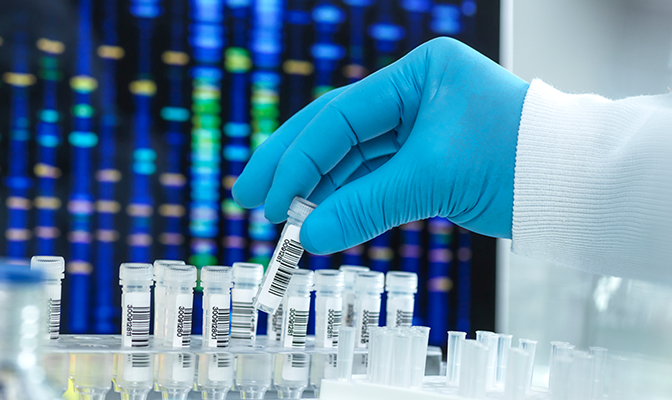
Our Science
At our core, we strive to lead the way in clinical genomic diagnostics, providing vital solutions to patients while pushing boundaries of genomic technologies. We are passionately committed to prioritizing R&D driven by a mindset of patient-centered care and the pursuit of effective cures aiming to discover impactful remedies for a wide range of conditions.
Publication
Found 191 Results
Page 1 of 20
Product
We’re here for your Care and Cure
Latest news
Found 10 Results
Page 1 of 1
October 20, 2023
GC Genome to Present the Latest Lung Cancer Diagnostic Tool at ESMO 2023
- An innovative study of methylation markers and deep learning model enables precise lung cancer diagnosis.
GC Genome Corporation, a leading diagnostics company, today announced that it will present data showcasing deep learning algorithm utilizing methylation markers that can identify lung cancer at the European Society for Medical Oncology (ESMO) 2023 Congress, taking place from October 20-24 in Madrid, Spain. The new data showcases GC Genome's ongoing dedication to assisting individuals battling cancer.
The poster highlights a combination of methylation markers and deep learning model that can distinguish between lung cancer patients and healthy individuals using methylation and size information. Using a targeted EM-seq panel, the lung cancer detection performance achieved an accuracy of 81.5% and an AUC of 0.87. Moreover, the serial dilution experiments have demonstrated the capability to detect lung cancer with a sensitivity of 80% down to a tumor fraction of 0.1%, offering a highly sensitive and accurate diagnostic tool for lung cancer.
"We are thrilled to introduce our latest findings on the methylation-based deep learning platform which has the potential use in lung cancer diagnostics," said Eun-Hae Cho, Chief Technology Officer at GC Genome Research Center. "The poster we'll be unveiling at this year's ESMO Congress demonstrates a significant advancement in our research and offers an opportunity for enhanced accuracy through the integration of methylation data and genomics, ultimately leading to the improvement of treatment for lung cancer patients."
Align with this dedication, GC Genome commercially launched 'ai-CANCERCH,' a liquid biopsy test designed for the multi-cancer early detection (MCED) this September. This achievement comes after validating its performance through an assessment involving over 3,000 patients who participated in the Early Access Programme (EAP) during 2022 and 2023. ai-CANCERCH has the capability to predict the presence and specific type of six cancers - lung, liver, colorectal, pancreatic, esophageal, and ovarian cancers - using only a single blood draw. This groundbreaking test relies on a proprietary artificial intelligence algorithm developed by GC Genome. GC Genome's innovative approach brings hope for improved healthcare outcomes and underscores their commitment to advancing the field of cancer detection and treatment for patients worldwide.
Poster Presentation:
- Title: Development of a Deep Learning Algorithm for Lung Cancer Diagnosis Using Methylation and Fragment Size Profiles of cfDNA
- Date and Time: Sunday, 22 October 2023, 9:00 AM - 5:00 PM CET
- Location: Hall 8 Poster Session 14
- Presentation Number: 1251P
[About GC Genome]
GC Genome is a leading diagnostics company that aims to connect the care and cure to the world by offering genetic diagnosis services for Oncology, Pre&Neonatal, Rare Diseases, and Health Check-ups and suggesting personalized treatment for longer and healthier lives. Established in 2013 as a GC company, GC Genome operates a CAP-accredited laboratory and places the utmost emphasis on R&D. With steadfast partnerships established worldwide, GC Genome has shown impressive growth momentum, continually expanding our testing capacities.
Global Partners
As a global clinical genomic company, GC Genome is also working together with many companies from around the globe. We have built strong partnerships especially with the clients from Asia and the Middle East. Furthermore, we are scaling up our business to America and Europe. By expanding the global network, GC Genome aims to increase our capacity and reach out to more patients in need.





